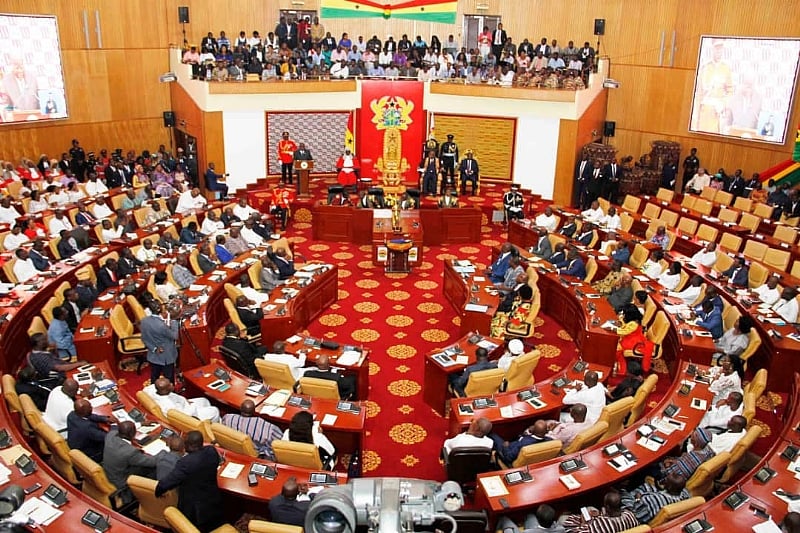Across Ghana, from Tamale to Accra, an unsettling trend is taking root among the nation’s youth. Rising levels of drug and substance abuse! Once a marginal issue, it is now a widespread menace threatening the moral, physical, and mental well-being of the very generation tasked with leading Ghana into the future. On street corners, in ghettos, and even within school compounds, substances like tramadol, marijuana, cocaine, shisha, codeine, alcohol and locally brewed concoctions are destroying lives. “We see kids as young as 14 addicted to tramadol. The supply chain is well-known, yet no one seems to be acting,” says a nurse at a Tamale-based health facility who spoke on condition of anonymity. “Instead of decisive policies and community action, many observe a lukewarm response to a menace that is destroying the youth” she lamented.
Easy Access, Weak Regulation
Pharmaceutical drugs are openly sold in markets without prescriptions. Alcoholic bitters laced with unknown stimulants are advertised in broad daylight. Many of these are accessible to minors, a glaring failure in regulatory enforcement. “The laws exist, but enforcement is poor or deliberately ignored,” says a retired police officer.
Is There Political Complicity?
Is it true that politicians for fear of an awakened youth use drugs as a tool of suppression? Unfortunately, there is growing suspicion that political actors turn a blind eye, or worse, quietly benefit from the intoxication of the youth. The idea is unsettling but not unfounded. Whether or not this is intentional, the effect is clear. A dazed, frustrated, and addicted youth population is less likely to engage meaningfully in governance and development. “A youth that is drugged is a youth that is easily manipulated. They won’t protest, they won’t demand accountability. That suits many politicians just fine,” argues a political analyst.
This chilling possibility must push us to demand accountability from our leaders. Ghana cannot afford to sacrifice its young people on the altar of political expediency. With youth unemployment soaring and recreational facilities virtually non-existent, many young people seek escape, and find it in substances. The result is a generation at risk of total social collapse.
The Cost: A Lost Generation
These suspicions of political complicity are not unfounded. In several communities, well-known drug dealers operate openly and are allegedly protected by powerful individuals — politicians, government officials, chiefs, and opinion leaders. Youth-centered campaigns and rehabilitation efforts are often poorly funded, while millions are expended on entertainment, freebies, and sometimes, alcoholic beverages or cannabis distributed to win loyalty. The toll is immense. Families are torn apart. Schools lose bright students. Crime and mental health issues rise. Prisons are filled with first-time offenders who needed help, not punishment. Addiction is being criminalized, instead of treating it. Our prisons are full, and our rehab centers are empty or underfunded. Once a while, some scapegoats without the right connections are found and dealt with, just to create an impression that the war on substance abuse is in full gear.
The Way Forward
It is time to move from rhetoric to action! Experts and stakeholders recommend the following:
Tight regulation of pharmacies and chemical sellers, especially in slum and rural communities Drug awareness education integrated into the school curriculum, starting from Primary One. TV and FM programmes tailored by seasoned media practitioners More youth-friendly rehab centers, not just police cells Community empowerment programs and vocational training opportunities Political accountability laws that criminalize systemic neglect of youth welfare Police, Immigration and CEPS officers at all entry points, especially our borders, playing proactive roles in disallowing any harmful substances into Ghana Importers ensuring that they do not bring in any substances which are abused by the youth The Courts passing very harsh judgments to deter dealers of all abused drugs
The Youth Must Also Rise
While society must step up, young people also have a responsibility to resist the pull of drugs. Their future is theirs to protect. The youth must be at the fore assisting in eradicating this menace. Any person who reports anyone dealing in these substances should know (a responsive and responsible) office to call and make a complaint. Such complainants must be swiftly rewarded.
Ghana at a Crossroads
This is a defining moment. The fight against corruption must go together with the fight against drug abuse. The two puts Ghana on the road to recovery. For many who were interviewed, eradicating the drug abuse menace must be a priority for Government. But the question which looks unanswerable is: will Ghana invest in its youth or abandon them to a slow death?
As the world changes rapidly, no nation can afford to neglect its young population and hope to survive. The time to act is now!
FUSEINI ABDULAI BRAIMAH
0550558008 / 0208282575 [[email protected]]


